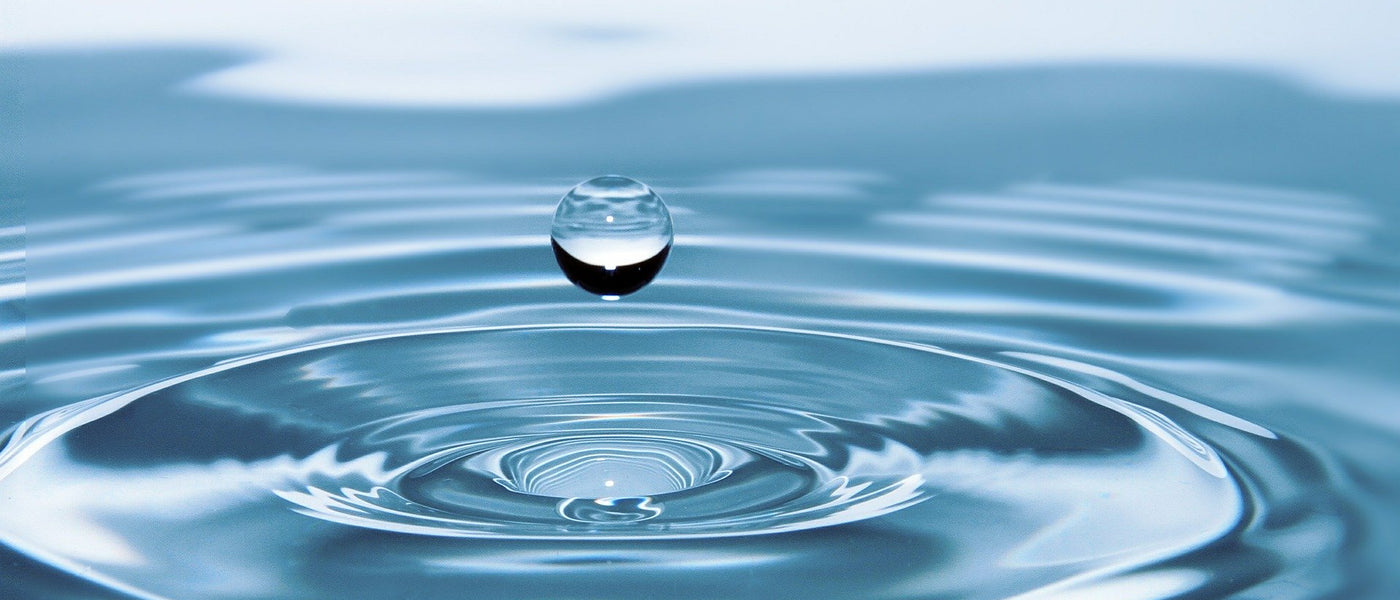
A SOURCE OF LIFE: THE IMPORTANCE OF DRINKING WATER
The relationship between water and life has become more and more substantiated over the centuries through the deepening of knowledge on the role of it in biological systems and in the human organism. Discover the importance of drinking water.
Veden erityisten kemiallis-fysikaalisten ominaisuuksien vuoksi se osallistuu lähes kaikkiin ihmiskehon toimintoihin; se toimii elimistössä epäorgaanisten ja orgaanisten yhdisteiden liuottimena, edistää elektrolyyttien dissosiaatiota, toimii lämpösäätelynesteenä, mahdollistaa aineenvaihduntamuutokset ja on reaktanttina lukemattomissa solukemian muutoksissa, kuten entsyymireaktioissa ja biologisessa hapetuksessa.
The importance of drinking water.
Water is the main constituent of the human body and represents about 60% of body weight in adult males and 50-55% in females (characterized by a higher percentage of body fat than males), and up to 75% in a newborn. The total body water content, the intracellular and extracellular hydration process and the balance between the entry and exit of water in the body are under homeostatic control and are exercised with mechanisms that mainly regulate excretion and, secondly, stimulate the intake by feeling thirsty. Feedback mechanisms that mainly act on the kidney are also able, albeit to a limited extent, to regulate the tonicity of intracellular body fluids.
The European Food Safety Authority (EFSA) has ascertained a cause-effect relationship between the daily intake of water and the maintenance of normal physical and cognitive functions. The recognition considers that a body water loss of about 1% is normally compensated within 24 hours and that the absence of such compensation and the further increase in body water loss compromise physical and cognitive functions. It is also certain that water plays a particularly important role in thermoregulation. The increase in body temperature is a consequence of the reduction of sweating and cutaneous blood flow induced by dehydration.
The recognition of EFSA refers to the waters that meet the regulatory requirements for natural mineral waters and for waters intended for human consumption and is associated with information for the consumer that the indicated effect is obtained with the daily intake of at least 2.0 liters of water in any form.
How much to drink
Juotavan veden määrä vaihtelee yksilöllisesti ottaen huomioon elinympäristön, työn ja aktiivisuuden, ruokavalion tyypin sekä elämäntavat.
Under normal conditions, self-regulation mechanisms and complex factors that determine the sensation of thirst assist the body to take the right water requirement necessary to compensate for water losses, which continuously take place due to sweating, breathing, excretion of urine and stool. However, some individuals, especially children and the elderly, are more subject to dehydration also because they demonstrate a reduction in perception in the feeling of thirst and in the natural stimulus to drink, with the risk of not adequately and promptly balancing water losses. For this reason, it is necessary to satisfy the sense of thirst in all cases, tending to anticipate it, or, in any case, to guarantee the body a regular and adequate quantity of water to keep the water balance constantly balanced and prevent risks of dehydration. Dehydration, caused by an intake of liquids lower than the loss of water, also has serious effects on the body's activity and physical performance.
The persistent state of dehydration is associated with a significant increase in the risk of many pathologies, even serious ones, primarily affecting the kidney.
Euroopan elintarviketurvallisuusviranomaisen (EFSA) asiantuntijat ovat hiljattain määritelleet uudelleen eri ravintoaineiden, myös veden, viitearvot ja suositelleet määrät hyvän terveyden ylläpitämiseksi iän ja sukupuolen mukaan.
The reference values, which consider the water taken as a whole - both through direct consumption and through food and drinks of all kinds -, in conditions of moderate environmental temperatures and medium levels of physical activity, are defined as follows:
-infants up to six months of life: 100 mL / kg per day;
-children: between 6 months and one year of age: 800-1000 mL / day, between 1 and 3 years of life: 1100-1300 mL / day, between 4 and 8 years of age: 1600 mL / day;
-ages 9-13: 2100 mL / day for boys and 1900 mL / day for girls;
-adolescents, adults and the elderly: females 2 L / day and males 2,5 L / day.
These values are indicative; in conditions of warm weather and intense physical activities, or other conditions that induce dehydration, the water levels to be taken can vary considerably (it can also be considered more than double the values indicated). This also occurs in stressful conditions and gastro-enteric disorders that lead to vomiting and diarrhea, such as for infant diarrhea.
